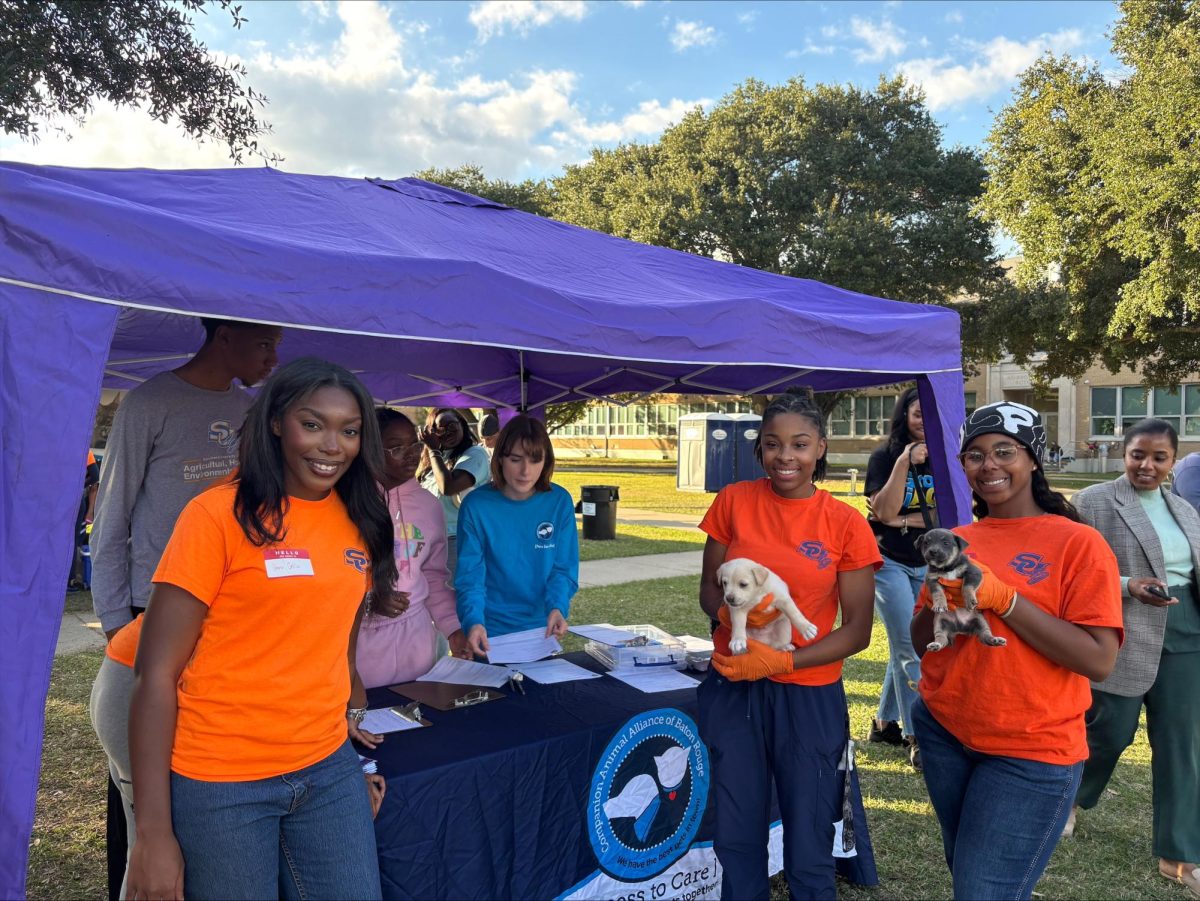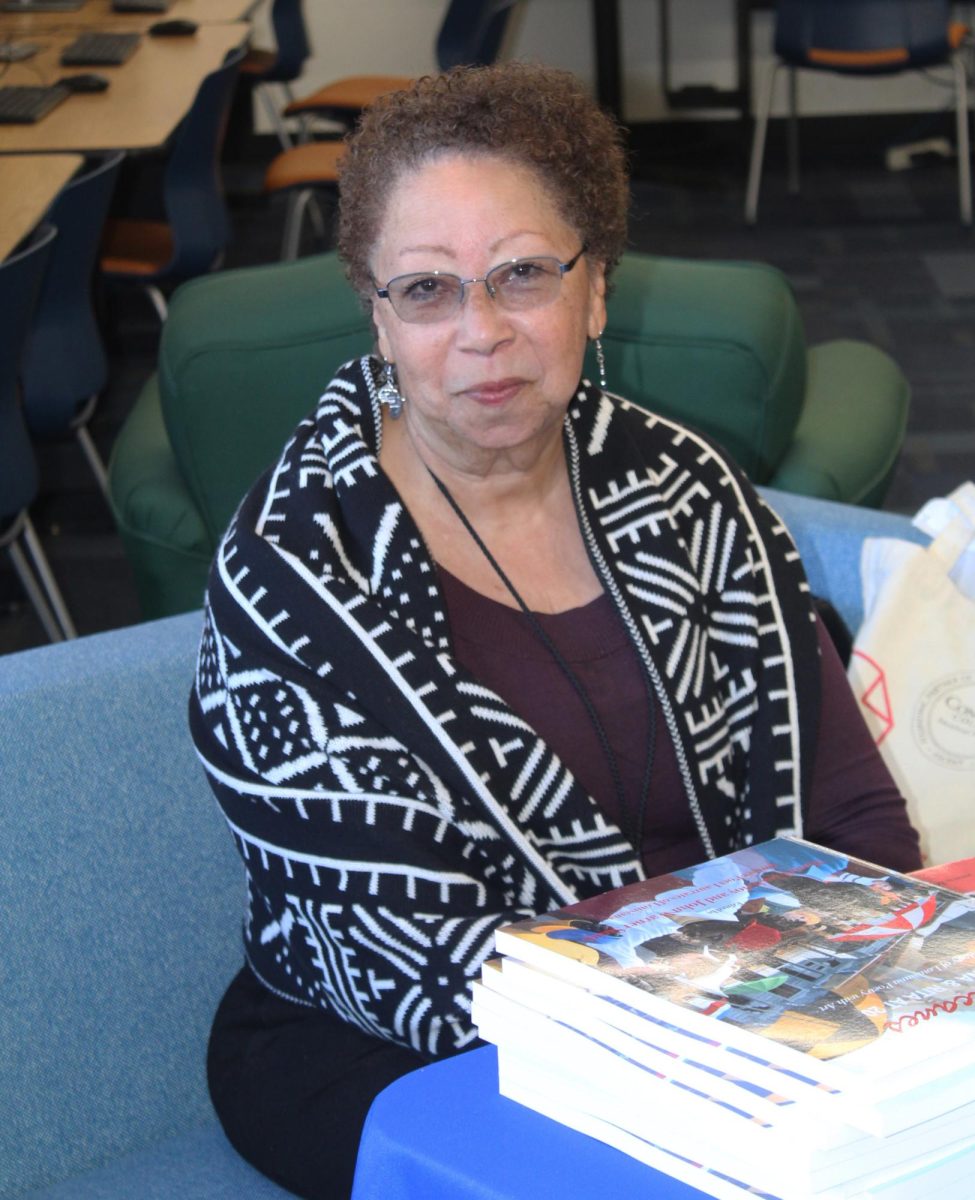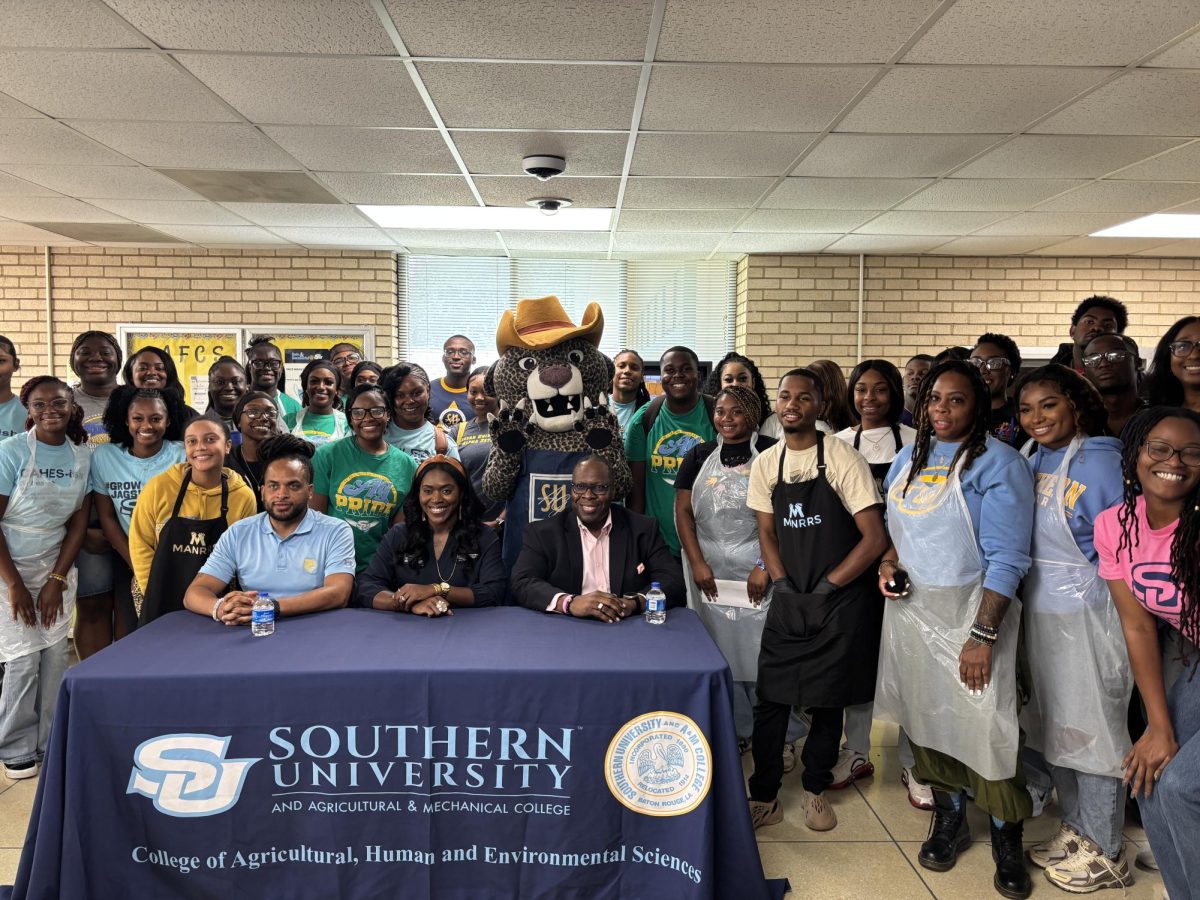In 1621, Plymouth colonists and Wampanoag Indians shared an autumn harvest feast that is acknowledged today as one of the first Thanksgiving celebrations to have ever happened. This is recognized by many as the story of Pilgrims crossing Massachusetts Bay on the Mayflower.
While this marked the acknowledgement of the day, it wasn’t until 1863 that President Abraham Lincoln deemed Thanksgiving Day a national holiday, to be celebrated each November.
Since then, the culture of the holiday has developed thoroughly, and has spread across many countries that have all put their own spin on the festive day.
The “traditional” Thanksgiving meal in the United States is a combination of the most soulful foods that some families cook only during the holidays. From the turkey, to the stuffing, all the way to the various pies for dessert, Americans truly go all out to prepare a feast for family and friends.
Junior Political Science major, Darius Smith finds Thanksgiving to be an opportunity to collect as many of the delicious meals prepared by various family members as he can.
The New Orleans native admitted that he is picky, but has his favorites.
“Thanksgiving at my house is preparing to stop by everyone else’s house because they all make something different that I love. My favorite is the cranberry sauce, though,” Smith said.
If cranberry sauce isn’t necessarily your favorite, don’t fret. There are plenty of other cultural options.
While some spend the holiday indulging, others spend this time preparing for their own similar cultural holidays.
In Japan, Thanksgiving is not as big of a deal as it is in the United States. In fact, the holiday goes by a different name, ‘Labor Day Thanksgiving’.
“Labor Thanksgiving Day” is about being thankful for workers who do their job and do it well. In school, kids sometimes make thank you cards and gifts for municipal workers like police, firefighters, and hospital employees.
Most businesses are still open on ‘Labor Thanksgiving Day’, but government services are closed down. There are little celebrations all over the country, but none top the spectacle of the celebrations in the US.
Freshman Finance major, Jazz Maruo is a native of Japan, and he expressed how he has experienced an ‘American’ Thanksgiving with a Japanese twist.
“We make turkey and mashed potatoes, and other things. But we make this really big noodle, and when the time comes we all eat it. . .it’s pretty different from [Louisiana],” Maruo elaborated.
In Uganda, Thanksgiving is not recognized as a holiday at all. In fact, there are no holidays that even slightly resemble similar festivities.
According to sophomore Accounting major, Suzannah Omonuk, there are very few holidays that are mutually celebrated in the United States and Uganda, and Thanksgiving is not one of them.
“We have feasts for so many other things, but most people do not know what Thanksgiving is in my country. The biggest thing we do is an introductory ceremony before marriage,” Omonuk said.
This may come as a surprise to many because of the rich culture known to thrive in Africa, but it is important to know that Ugandans consider ‘Thanksgiving’ as a time to revolt against things that are taboo in their country. In this sense, the title takes on a different connotation.
The Thanksgiving traditions that travel from country to country seem to vary, but the family aspect of it all remains the same. Whether there’s a turkey, or a large noodle on the table, it’s sure to be surrounded by family.
Categories:
International Affairs: A Thanksgiving Celebration
November 21, 2017
0





